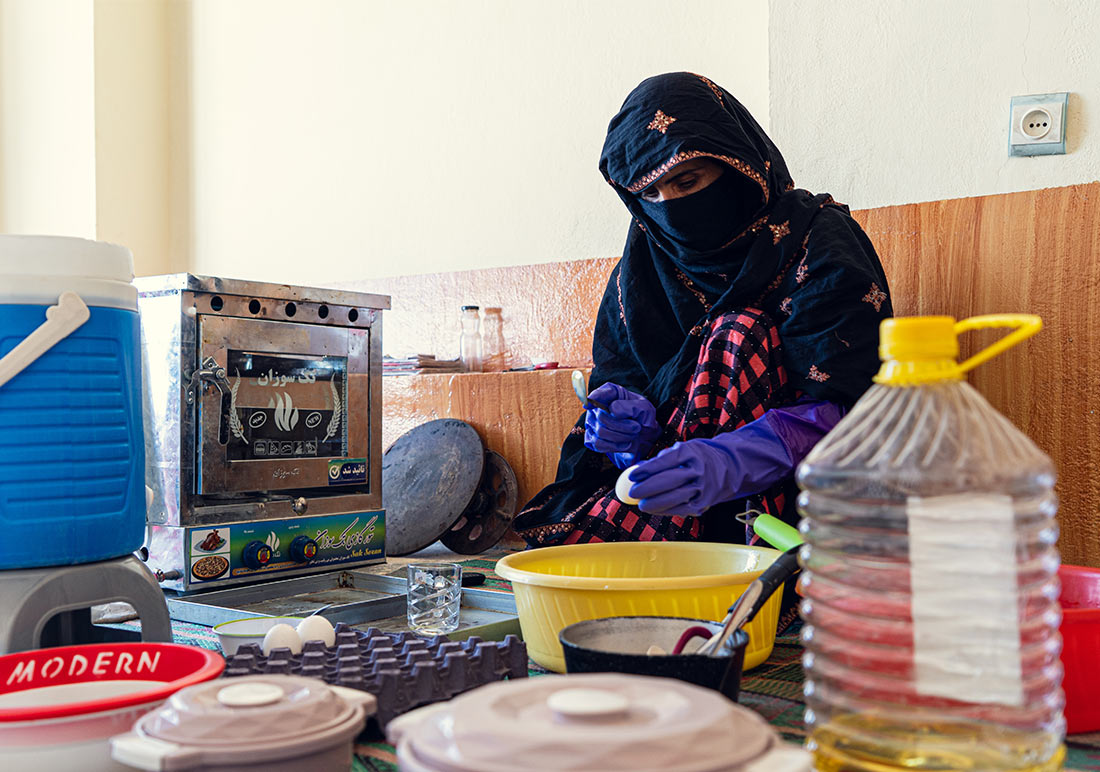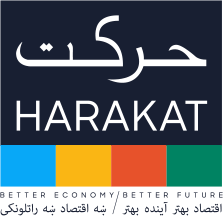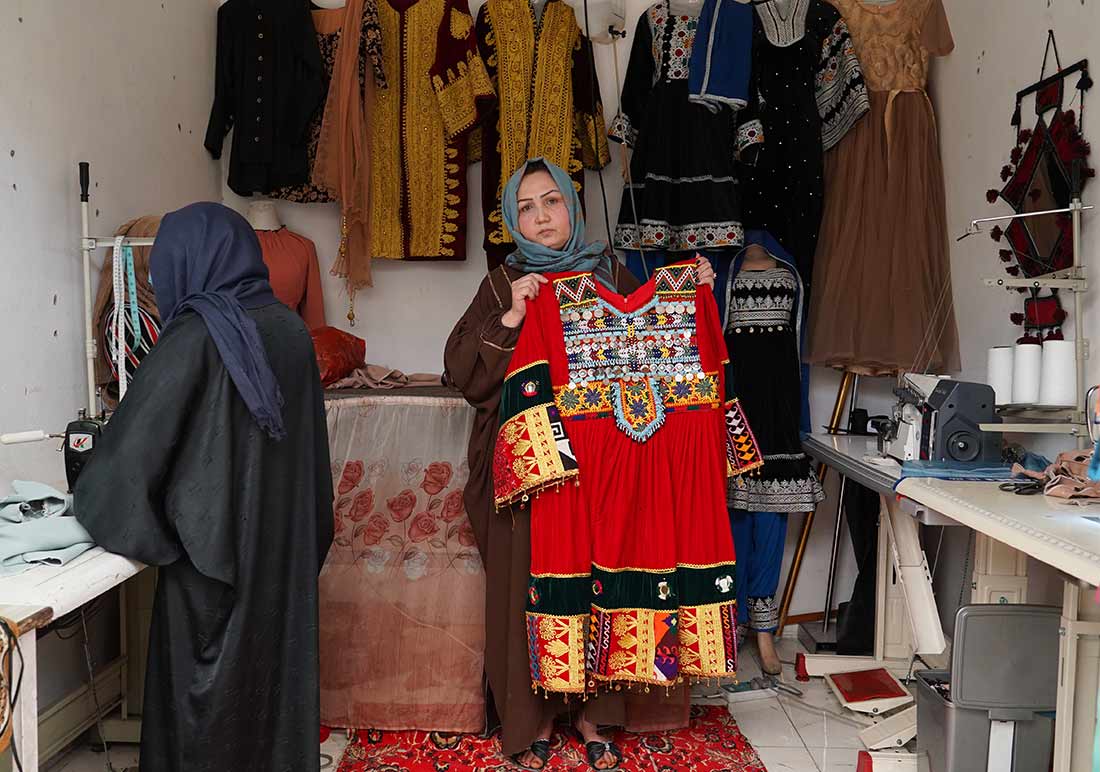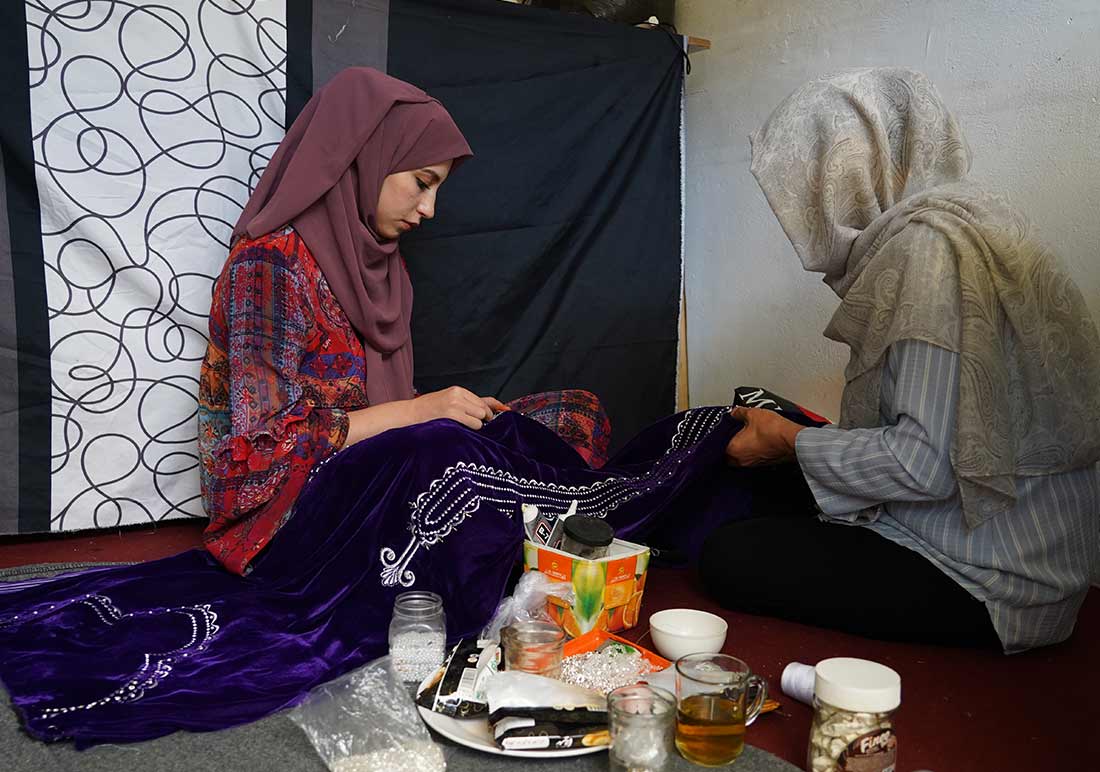
An oven, a lifeline: Afghan women shape a local economy
Inside the Bakery: A New Reality
The scent of warm cardamom drifts through the modest space where Najeeba Ghamkhwar works, her hands moving with practiced rhythm as she pulls a tray of cookies from the oven. Outside, a solar panel hums quietly, powering the tools she now depends on — an electric mixer and a battery-powered fan that stirs the summer heat. Leveraging solar power and modern tools, Najeeba’s bakery stands as a living example of how innovation can transform a humble homes into a hubs of economic activity.
The 35-year-old Najeeba is harnessing innovation to overcome mobility limits and financial barriers that once seemed insurmountable. Everything in this productive workspace has a purpose, plastic floors, raw ingredients, and human resources. There’s no signboard, no storefront, yet this small home-based bakery now supports a family of seven — and employs others.
Building on this foundation, Najeeba’s early challenges have gradually turned into a steady livelihood. Developing her skills and accessing capital, she’s moving beyond survival toward building a sustainable business. In doing this, Najeeba becomes part of a growing group of Afghan women in Zabul province of Afghanistan who are taking charge of their economic futures despite longstanding social challenges. Today, her world is one of movement, production, and quiet command.
But it wasn’t always this way.
The Turning Point: From Loss to Survival
Two years ago, Najeeba’s home was silent, heavy with uncertainty. Her husband, a taxi driver and the family’s sole breadwinner, had been killed — leaving her alone with six children, the youngest only four years old and the eldest barely a teenager.
“When my husband was martyred, our problems became immense,” she recalls. “We were suffering from economic hardship.”
With no formal employment and no income, she turned to what she knew and she could: baking. She began making small batches of cakes and cookies with her bare hands, hoping to earn just enough to keep food on the table. But without tools, without capital, and without guidance, her efforts barely made a difference. This underscores the need for tailored financial and business assistance to help people like Najeeba fight exclusion from formal economy.“I had to gird myself for business to support my family,” she says.
Like many women in Zabul, a province where, according to a 2019 World Bank study, fewer than 3% of women participate in the labor force, Najeeba found herself excluded from economic opportunities. Her struggle to build a livelihood was not just personal; it reflected the broader challenges faced by women across Afghanistan, especially in the southern provinces of Kandahar and Zabul, where critical gaps in access to finance and markets hinder economic inclusion.
Opportunity Meets Preparation
Najeeba’s breakthrough came when she heard about a program supporting women entrepreneurs in Zabul and Kandahar, the Women’s Economic Activity in the Private Sector (WE-ACT) project, implemented under the leadership of HARAKAT with support from UNDP. Najeeba was one of 400 entrepreneurs selected from more than 1,200 applicants in Kandahar and Zabul. These women operate across key value chains, including embroidery, tailoring, dairy, food processing, bakery, and shampoo production.
HARAKAT supported 200 entrepreneurs in Zabul and 200 in Kandahar through a three-part program. First, it provided an intensive five-day business training. This training laid the groundwork for the bakery’s sustainability, helping Najeeba shift from survival to growth through practical skills and new confidence.
“I learned how to take my business from a small stage to a bigger one,” Najeeba says.
Second, each entrepreneur received a cash grant of USD 1,000, totaling USD 400,000 in capital support to women-led enterprises contributing to the local economy and markets of the two provinces. Najeeba used hers to install solar panels, purchase batteries, and upgrade her workspace. Third, all 400 entrepreneurs received customized business toolkits worth USD 625 each, representing a USD 250,000 investment that enabled them to upgrade equipment, boost production capacity, and scale their businesses. Najeeba’s included a bakery toolkit including a stove, electric mixer, two ovens, baking trays, gas cylinder, and a first aid kit.
These resources were not gifts—they were strategic tools that enabled women like Najeeba to regain control over their livelihoods and support their families’ futures. The WE-ACT project strengthens the resilience of women-led enterprises, positioning them as drivers of local economic recovery, market dynamics, and community cohesion. In doing so, it redefines women’s roles in the economy, empowering them as visible role models, market actors, employers, and agents of change.
Building a Sustainable Business
With the new equipment, Najeeba’s bakery began to flourish. The installation of plastic flooring and solar panels turned her home into a clean, energy-efficient workspace. Her daily income now ranges from 400 to 450 Afghanis, amounting to 12000-14000 Afghanis per month—sufficient to cover her family’s expenses. Similar to Najeeba’s bakery, HARAKAT’s support has helped boost each business’s income by 40%.
WE-ACT’s infrastructure and business advisory services enabled Najeeba to attract a growing customer base, offering products at prices matching local purchasing power. Najeeba’s success extends beyond personal success — it exemplifies how investing in women-led businesses can effectively reduce poverty and inequality. Her bakery has transitioned into a sustainable enterprise built on strategic investment and sound management.
Impact Multiplied: From Beneficiary to Employer
Najeeba’s influence extends far beyond her bakery, creating positive ripple effects throughout her community. Her bakery has become a hub of shared opportunity that economically empowers local women. She employs nine apprentices, eight women and a man, all of whom live about a 20-minute walk (roughly 1.5 Kilometers) from the bakery. The women, Nazdana, Sharifa, Malalai, Khatira, Leila, Tsanga, Mina, and Cheeni Gul, are involved in the process of making and baking the products, while the male apprentice, Sultan Mahmood, is managing sales and sourcing raw materials. Only Malalai and Sanga receive a fixed salary of 3,000 Afghanis per month. The others are unpaid apprentices hoping to become earners in the future by working under Najeeba. Najeeba’s story is part of a larger movement. Under WE-ACT, HARAKAT has created over 1,600 new jobs for women across Kandahar and Zabul provinces.
This private sector leadership is especially significant in a context where women’s participation in the labor market has historically hovered 3% since 2019. Women like Najeeba are proving that Afghan women can not only overcome barriers to participate in local economies—they can stabilize and transform them from within, one enterprise at a time.
A Local Network, A Larger Change
Najeeba is not alone. She has connected with other women entrepreneurs supported by HARAKAT in Zabul—like Kafia, who produces shampoo and leads a family of seven, and Sultan Bibi, an experienced tailor with a family of five. Together, they share experiences, exchange ideas, and support one another through the challenges of running businesses in a restrictive environment. Building networks among women entrepreneurs is more than a byproduct of the WE-ACT project—it is a core pillar of its broader impact. When women support women, local economies grow stronger.
A Message in Her Voice
Najeeba is no longer the woman who once feared for her children’s future. Today, she stands as a confident entrepreneur, an employer, and a community role model—a role model not by design, but by perseverance. Her voice reflects the quiet strength of thousands determined to rebuild.
Her message to women who are charting a new path is clear and powerful:
“They must have courage and keep themselves busy with a business.”
Passionate - Dedicated - Professional



